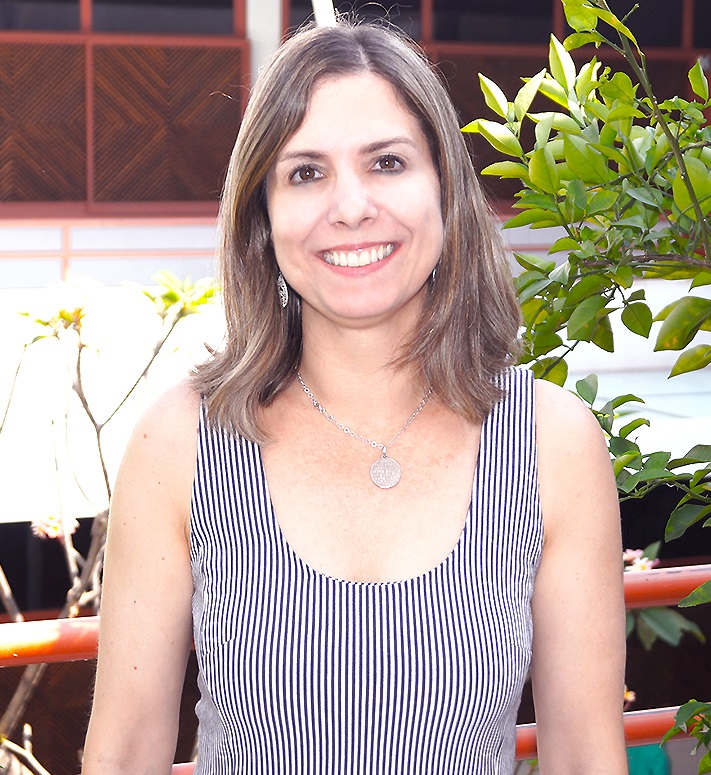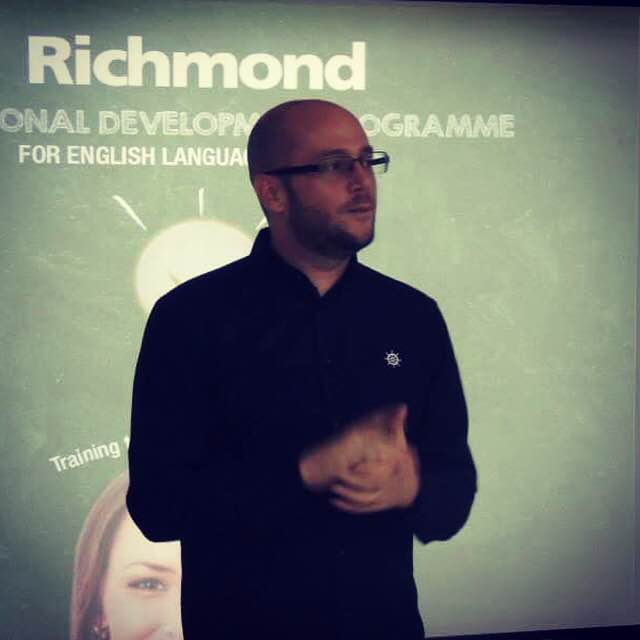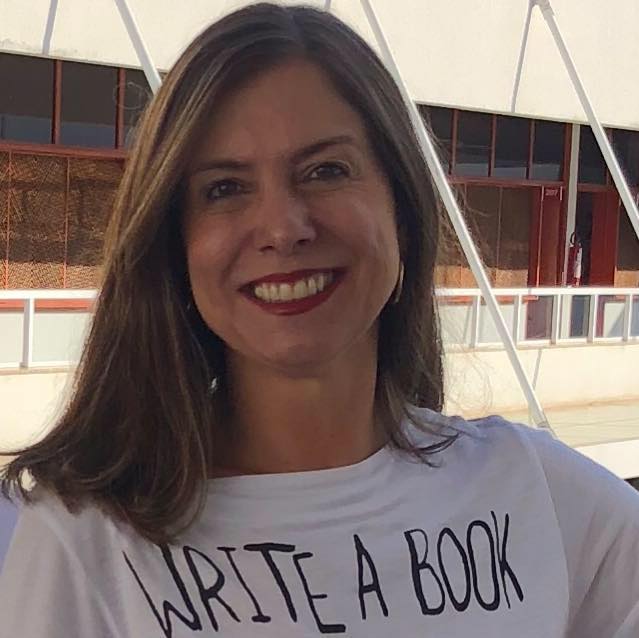I used to think…
Have you ever thought about what you used to think about teaching when you started and how this has changed as the years went by? This was the topic of my very first class with a group of experienced public school teachers. After reading a blog post by Shelley Wright entitled I used to think…, my student teachers were asked to reflect upon their own assumptions and the surprises they’ve had along their careers. This month and next, I’m going to share their thoughts with you, and we would love to read your comments on them. They wrote their reflections knowing that I would share them with this blog’s readers, so your feedback to them will be very much appreciated!
At first I started teaching because I wanted to earn my own money, and I intended to be a psychologist later and thought that I’d teach for a short period. Well, that didn’t happen. I used to think that it would be kind of sacrificing to teach, but I’ve been doing this for 15 years and still love it. I also used to think that public schools would never provide good equipment for teachers. I was wrong. Our principals are always really concerned about upgrading our classrooms.
Michelle Machado
I used to think that you had to live in an English speaking country if you wanted to speak the language well enough, not to mention if you wanted to be an English teacher. Well, I have never lived in the USA or another place but Brazil. I like to remember, many years ago, when I first entered my English Classroom, and I was only 19, that my English teacher was a BRAZILIAN! How encouraged I was for her not being a foreigner. So, I asked myself, “Will I be able to speak English like my teacher one day? Will I be able to communicate with native speakers?” That day I imagined the possibility of becoming an English teacher. Here I am, almost a retired one now, but with so much to still learn. This is what I pass on to my students on the first day of class. There so many talented students that I like them to know they can learn a language at our CILs or anywhere else in Brazil. YES! If they have an intrinsic motivation like me or like you, they can speak it fluently. PERIOD! Thank God I dared to believe that on my first day of class! That’s why I believe I have to make my students, on the first day of class with me, to believe they can learn English if they just invest in it. Of course, deciding to be a teacher, a lifelong learner, is the best way to learn a foreign language!
Denise Bussinguer
I used to think I was the center of the teaching and learning process in my classes. I didn’t use to consider the needs of my students and used to plan my classes just considering the topics, time, space, materials, goals and myself. For me, at that moment, students had to do the tasks just because I was asking; it was according to my plans and it was enough for me. I really believed that it was enough to guarantee their learning. How worried I was! How I think totally differently nowadays! I try to think about my students’ needs all the time, their interests, their ways of learning, their abilities, and their feedback. I don’t know if I get to reach my goals most of the time, but I keep trying to understand more and more how to work considering all these aspects about my students.
Flavia Oliveira
I used to think that clear, well planned instruction was all it took to make students learn. What I didn’t realize was that I was ignoring the key subject of this process: the student. I have always been a sensitive person and, as a teacher, I have been close to students, but I didn’t know how to make their needs count in the process. I thought they had to fit in the system and there was nothing I could do for those who did not want to learn. Now I see that there is always a reason for their lack of interest and that they have the right to judge something uninteresting, especially if it is totally disconnected to their reality, which is what usually happens when we use international course books with public school students. Whenever I plan my classes nowadays, I keep asking myself (and sometimes my students) what is meaningful to them that can be used to learn English.
Daniela Ismail
I used to think that when my students had a listening activity, my only worry should be providing them the conditions they needed to understand the text in order to make sure they could listen to the CD appropriately. After a while, I noticed they need to be oriented – sometimes in a very obvious way – and now I know that a good English teacher interacts not only with students but even with “recorded material” as well. Actually, I think that all the answers are very similar here in the post, especially considering that we are English teachers and we were very motivated English students in the past. I mean, we expect our students to be as interested in English as we once were as students. And unfortunately that’s not the way it is. We were so interested in English that we became professional operators of this language and our students, in general, simply want to know the language for some specific reason in the easiest way possible.
Wendel Vieira
I used to think that my students were always intrinsically interested in learning English. I thought they would like to speak and learn English in a good way, but now I know that if I really want this, I am supposed to be patient and teach English in a creative and interesting way so that my students can learn and like English.
Cassia Damasceno
When I started teaching, I used to think that my students should be busy all the time doing tasks to prevent them from chatting and disturbing my class. I also used to think they weren’t able to do things on their own and have autonomy. I changed my mind when I observed that I wasn’t having good results with my behavior. Moreover, I could see they were sad and I was tired at the end of each class. So I decided to introduce different subjects that they are interested in, like games, music, chatting about their lives and speaking freely. This way, I can have a light atmosphere and get more participation from the students. And it seems they are really learning useful things and enjoying their English classes.
Eleuza Resende
I had a terrible experience with English in my whole school life. We had the same teacher for years and she was not good. It seems that she knew nothing about teaching. When I had to take the university entrance exam, I didn´t know anything, so my brother paid for a one-semester prep course in a private language school. This time the teacher was amazing, and I fell in love with English. I borrowed a dictionary from the library and studied hard, so hard that my best grade on the entrance exam was English and, after this, I couldn´t stop studying English.
I used to hide this story from my students, for somehow I thought it could show weakness, but I changed my mind. This semester I decided to tell this story to my lazy elementary group to motivate them to study and to convince them and show that everybody can learn something if this person wants to. During the following class with this group, my worst student, who asked for translation during the whole class, was answering all the questions and he told me that my story inspired him, so he got a dictionary and translated the words that he didn’t know in his homework and, after this, he felt great because he could understand and he felt so excited about English. That was great!
Nadja Dantas
I also used to blame myself when everything was wrong in my classroom. I used to think that teaching English skills was the most important thing. Now, I realize that teaching students to behave and face life’s problems can be more useful sometimes, especially when there are teenagers in class.
I used to think that it was not necessary to have so much contact with them. Now, I realize how important it is to be close to them. It helps the learning process.
Finally, I used to think that I, myself, would change the learning process. Now, I realize that it is difficult to do it alone, but I still believe that it is possible.
Simone Soraia Silva
I have been teaching for a short time, so I am not sure I can say I have changed my mind a lot in these four years, as I am still trying a lot of things.
But I could say that I myself used to think that I had to give lots of examples and that it would be super important. Nowadays I believe that fewer examples are better if I allow students to have some time to practice. It is better if they learn how to really use “love, like, hate”, than memorize also “enjoy, fond, amuse, dislike, adore etc.” if they are not able to use them.
I used to think that, when having students work in groups, I should have more proficient students working with the less proficient ones all the time, and the “strong” students would teach/help the “weaker” ones. I recently learned that this is not always good or true, because more proficient students do not necessarily want to be teachers, and less proficient students can do a task together, and even if they do not have the same results more proficient students do, they will learn more when they have to do a task counting on what they know, and not in some “magical solution” from someone who can be a bit more advanced.
Fernanda Coutinho
When I started teaching English, I thought that I should introduce a lot of grammatical items, long lists of new words; I thought that I was supposed to explain every single thing to them, every difficult word; and I used to blame myself every time something was wrong with my classes. Well, now it’s been 21 years teaching. Things are different now. A good class doesn’t mean too many tasks; it doesn’t guarantee quality. If you introduce one grammatical item per class, and review it as much as necessary, give good support to the students, you do a good job.
Cinthia Nunes
I used to think that I had to teach my students only good grammar and a lot of vocabulary, and they would improve their learning, but now I expose them to modern topics of their interest, through songs, movies, readings, poems, cartoons, oral activities/ listening and let them learn the grammar and new vocabulary naturally. I try to keep a light relationship and let them know that I really care about them and they are much more than grades.
Rosemary Oliveira
When I started working as a teacher, I used to think teenagers were creatures from outer space, for they had such a bizarre way of behaving, thinking and doing things. By changing the way I looked at them, I can say that now I see them as great adults-to-be, people who need a talented teacher like me. I do my best not to let them down. I also used to think that students would be more respectful if I acted as strictly as an army captain. Hopelessly wrong! Students started respecting and treating me kindly when they started looking up to me for the friendly way I treated them. That is something I am very proud of – the rapport I establish with them.
Telma Cristiane
Well, I also used to think that my students were there to learn new things, but I realized that teenagers want to chat, date, sleep, that is, do many things but study. This led me to change my point of view and try to know what they like to study, even ask them for new ideas of activities to do in class.
Besides that, I used to think that if I was strict when they did something wrong, they’d hate me forever, but then I realized that the opposite was the reality, and what they needed sometimes was the limit most of them didn’t have at home.
Finally, I used to think that they knew what to do in class, how to study, and now I understand that the majority needs me to show the way and I hope that they can continue without me in the future.
Keila Araujo






